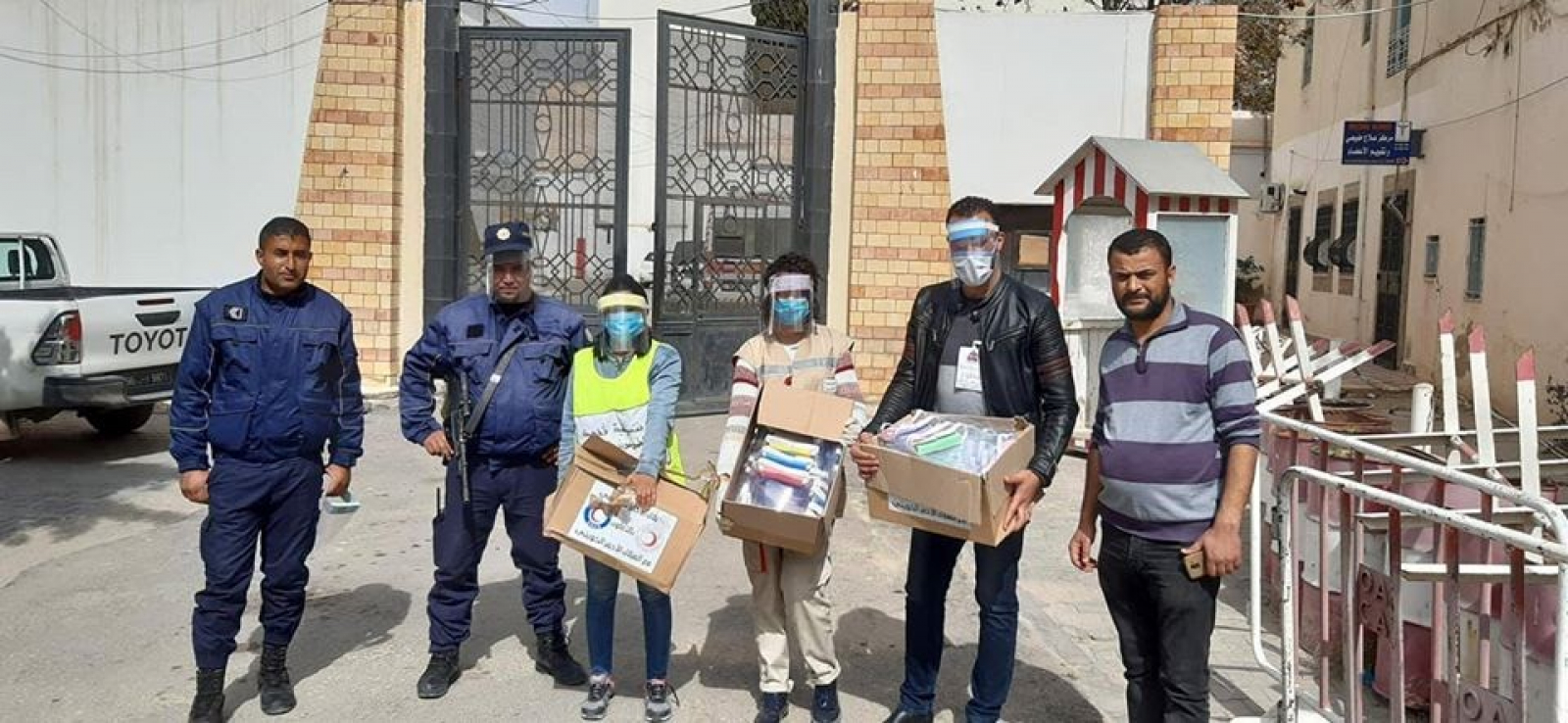
SHARE
ISSUES
As COVID-19 becomes a leading governance challenge around the world, local governments are at the front lines of the effort to combat the spread of the virus. Following the first appearance of coronavirus in Tunisia, municipal councils established local crisis committees across the country to improve local government responses to COVID-19 and create safer environments for citizens. Civil society organizations (CSOs), political parties and elected officials are coming together through these committees to help communities combat the spread of COVID-19. Tunisian CSOs and political party members quickly became key members of these committees, steering crisis responses that directly address issues facing their communities. Mobilizing skills that community activists, CSO leaders, and political party members learned through their work with NDI, these individuals have become invaluable assets to Local Crisis Committees.
Local Crisis Committees in Tunisia were rolled out as a mechanism to create a more efficient and fine-tuned institution to handle the highly localized issues that have arisen during the spread of the coronavirus. Individual municipalities have made the decision to create these bodies, and although the composition of the crisis committees is not uniform, they are mainly composed of key community stakeholders, including the president of the municipal council; presidents of municipal council commissions: particularly, Health, Social Affairs, and Environment; representatives from the Regional Social Affairs Administration; and representatives from local CSOs.
Strong efforts to decentralize crisis response have proven effective to handle the wide range of challenges that communities have faced due to COVID-19, and represent a broader effort in Tunisia to localize governance overall. Overall, these committees have the ability to plan, coordinate and implement local policy responses to COVID-19 in ways that are smoothly aligned with municipal governments. This has encompassed a wide range of initiatives thus far, including: identifying particularly vulnerable community members and gathering and distributing aid aid to support them; disinfecting key public spaces on a daily basis; identifying and monitoring citizens returning from abroad who are legal compelled to self-quarantine; and ensuring public adherence to social distancing measures. In most instances, Local Crisis Committee members are meeting on a daily basis to ensure that their responses remain well-suited to address constantly changing aspects of the crisis.
bavette1 (7).jpg

Three of NDI’s CSO partners are currently members of Local Crisis Committees: IRADA Gafsa, Pole Civil Medenine and ATEN Gabes. These CSOs have made critical contributions to a wide range of achievements at the local level. They are complementing the state’s response effort, filling in key gaps, such as the provision of disinfectants and the coordination of disinfection operations. As an example of the innovative leadership coming from NDI CSO partners’ involvement in these institutions, Pole Civil Medenine is currently preparing a web application to facilitate effective aid distribution tracking, that will eventually be made available for public sector use. Through participation in NDI activities, many of these CSOs have been able to mobilize their established and skilled volunteer bases, making their involvement in local crisis committees particularly valuable. Moreover, through NDI programs, these partner CSOs have established relationships and trust with elected officials and municipal councils that have empowered them to take action, speak up, and make suggestions during the crisis.
Local Crisis Committees have also offered an opportunity for local branches of political parties to demonstrate their added value to citizens and potential voters, many in their capacity as elected officials at the municipal council level. Party representatives have reported ways that skills gained through NDI trainings have helped during this crisis. For example, a Mashrou3 Tounes activist said that her participation in an NDI digital communications training helped her facilitate Crisis Committee sessions where members strategized how to improve the local response to the crisis. Similarly, a representative of Attayar who leads communications for the Bouarada crisis committee uses lessons from NDI’s training in digital and crisis communications to enhance her role.
So far, Local Crisis Committees have proven an effective way for Tunisians to provide key localized support in response to the spread of COVID-19. Public health crises require responses that are finely tuned to the situation of particular communities, a level of nuance not well-suited to centralized governance. NDI’s partners from both CSOs and political parties have been very successful in adapting their heightened advocacy, project management and civic engagement skills to bolster the efforts of this local alternative. NDI continues to support them in their involvement with these Committees as they take on innovative leadership challenges in their communities.
NDI’s engagement with CSOs and political parties in Tunisia is implemented with support from the United States Department of State’s Middle East Partnership Initiative.
Authors: Marwa Louati (Civil Society and Social Contract Coordinator) and Andrew Blunt (Project Assistant) are with the MENA team at NDI.


